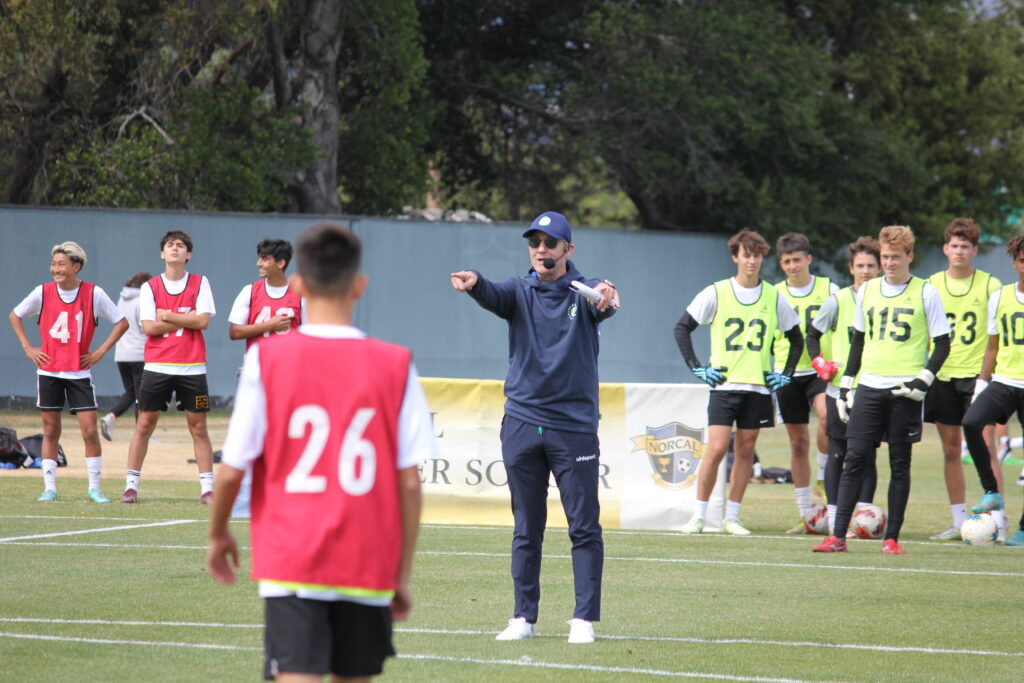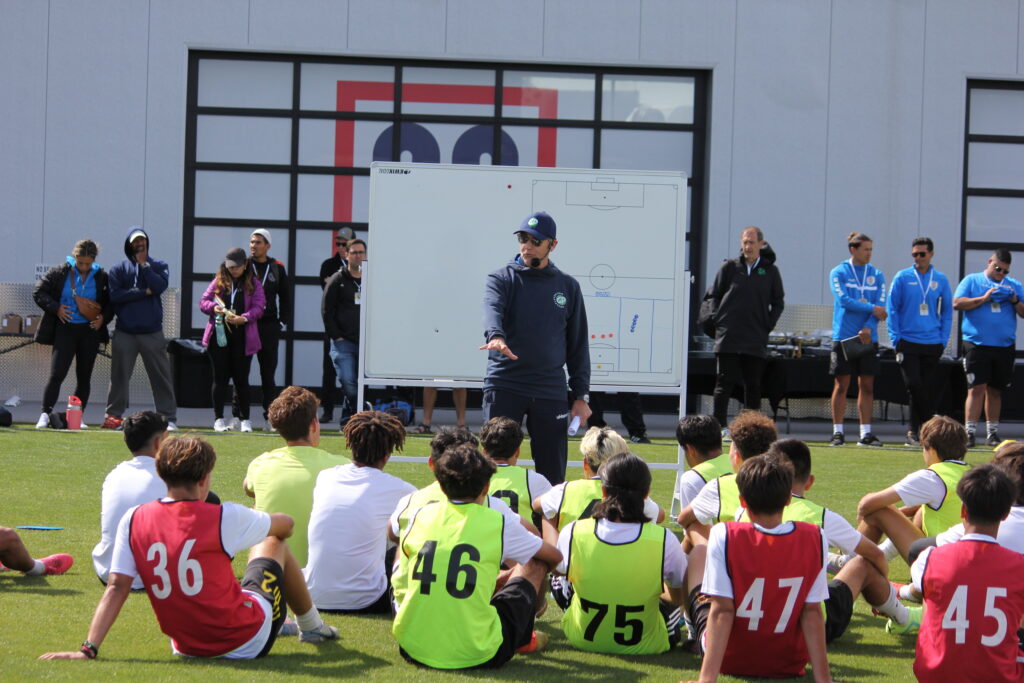Symposium Clinician Profile: Frans Hoek

Note: This is the fifth in a five part series highlighting the clinicians who will present at this summer’s NorCal Premier Soccer Coaching Symposium. Coaches can sign up for the event, which takes place June 7-9 at the Oakland Roots training facility, by clicking here.
It’s nearly time for the NorCal Premier Soccer Coaching Symposium, which means it’s nearly time to welcome Dutch coaching legend Frans Hoek back to Northern California, where he has served as one of the primary high-level educators for soccer coaches for quite some time.
The former assistant coach at Ajax, Barcelona, Manchester United, the Netherlands, and many more top soccer outfits, Hoek may teach local coaches every year, but he always returns with different lessons that help the soccer environment in Northern California grow.
While last year, Hoek’s lessons focused on set pieces and training the goalplayer–Hoek is leading the movement to rename this position from goalkeeper–this year, he will work on building out of the back.
And while Hoek typically works with world class talent, his presentation and field session will detail how to use his principles to help youth players from any club at any level.
“The interesting part is that (in Oakland) I won’t know the players and the players won’t know me so after they warm up, I’ll see if they can execute a build up,” Hoek said. “The best way to do this with these players in that situation is to let them play, see what level they have, and from there go back to formulating a session.”

“The game is always our teacher and not one game is the same because there are always different players,” he added. “So it’s interesting to approach it differently with different groups so you can get the best possible result with the players you have.”
For Hoek, who has served as the right hand man for legendary figures like Johan Cruyff and Louis van Gaal, accomplishing this in a training scenario always requires an approach that imitates a game scenario–training in isolation doesn’t have the same impact as training with match context.
“My trainings are based on the reality of the game, which is incredibly important,” Hoek said. “You have to look at the game, analyze the situation, and find a solution for the group you’re working with. That’s a beautiful challenge.”
“We want everybody to become better with their own team, you need to learn how you can implement these ideas with your own team,” he added. “The next steps are in methodology and how you can fix the things that you work on with different players. The principles can be the same, but each team and player is different so you always need to find different ways to improve.”












